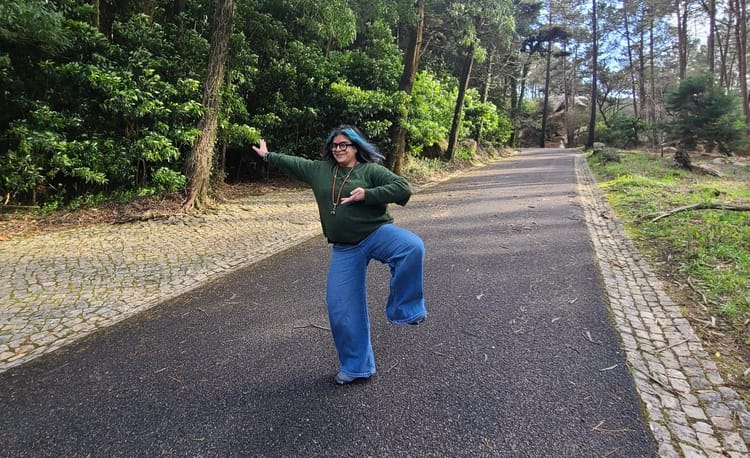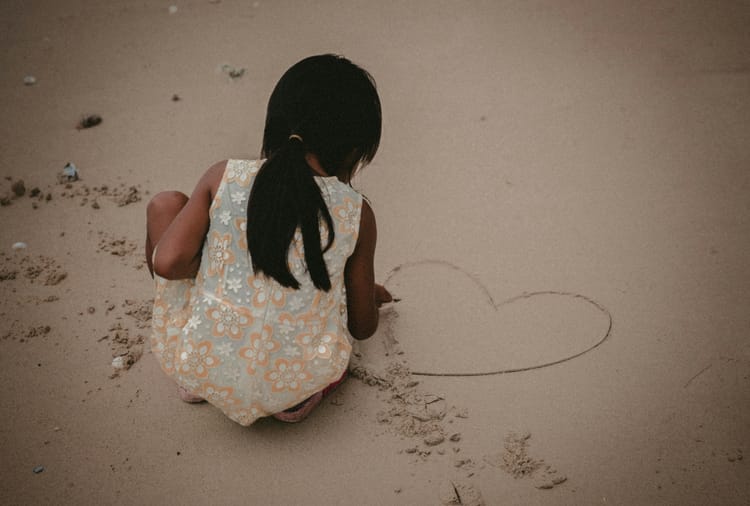Ruminations on death

When I was 19, I helped my mother die. As she lay in bed, mourning, wheezing from pneumonia and late-stage Alzheimer’s at 49, I gave her permission to let go. I promised her that I would take care of myself. I lit a ghee lamp in our little temple in the storeroom, and said, “The moment this lamp goes off, my mother will have died.” Late that night, my mom died in my dad’s arms. Everyone ran to her room, and I ran to the temple. Sure enough, the lamp, still half-filled with ghee, had somehow died. A metaphor for my young and beautiful mom, who had so much life to live, but for some reason, she could not see it through.
I held his hands, looked into his deep grey eyes, and said, “It is okay to be scared, and ready at the same time.”
In 2018, I helped my first client choose Medical Assistance in Dying (MaiD). He was 75 and had a rare form of genetic dementia that impacts a person’s movement, thinking, and emotions. This man had a great sense of humour and a penchant for writing emails to big companies to get what he wanted - a spot in a clinical trial, an accessible ramp at the local supermarket, a sponsorship for medication, and so on. But he was falling constantly and breaking bones. He was in a lot of pain. When he lost the ability to use his hands to use the computer, he decided he could not go on. I was able to visit him a day before he died peacefully with the help of a medical professional. He looked quiet, but ready. He greeted me with a limp hug. He affirmed when I asked if he was scared, and he negated when I asked if he had thoughts about changing his mind. I held his hands, looked into his deep grey eyes, and said, “It is okay to be scared, and ready at the same time.” I used the traditional metta phrases for him, “May you be freed of your pain and suffering. May you be free.” Tears rolled down his cheeks and his hands relaxed in mine. His wife and best friend of forty years hugged me with gratitude. We all cried as I left.
I was in a gathering of Buddhists recently; a friend was leading a group on welcoming spring. The discussion moved to what endings and beginnings meant to each one of us and how we could tell them apart. A lovely woman, perhaps in her 50s or 60s, shared that she was coming to terms with a terminal illness diagnosis. She was candid about the grief and fear she was experiencing. As she was speaking, I felt moved in a significant way. Her serenity in sharing was striking to me. We all thanked her for speaking openly. The air was quiet and heavy in the virtual room. My friend asked us what could we as a community do about this eventuality. The call was to be together in authenticity, mischief, and love.
My friend initiated a silly game of looking at our hands. One hand, then the other. Front, back, sideways. She played a catchy beat and invited us to move our hands as we wished. She added that we could mirror others. I did not know anyone in this group, and a small part of me had shied away from dancing on screen at the beginning of the session. This time, I felt carried away. For the whole five minutes, I moved and swayed and danced. I shimmied my shoulders and snapped my fingers. I opened my arms wide and looked up at the metaphorical sky. My hips grooved; my feet tapped. I was moving with joy and urgency as if my existence depended on it. And abruptly the music ended.
I had been quiet for most of the session, but I felt compelled to speak now. I shared that I had been contemplating my moment of death, and big emotions were emerging each time I thought about the impermanence of this physical body. But as I heard Aida share with equanimity, my fears felt assuaged. I understood that it is okay to feel all sorts of emotions, and it will be okay as long as I stay present and meet it all with my Dharma. And when I cannot not do anything about any of it, I will dance.
I dance in regular life, and my intention now is to dance even as I meet my death.
I remember my mother dancing with abandon as Alzheimer’s wreaked havoc on her brain. She didn’t know the lyrics to her favourite songs, but she danced. She clapped her hands and twirled. She would hold my hands and give me a smile that I can see clearly almost thirty years later.
We may or may not achieve the version or extent of the potential we think we have. That is the stark truth. As I accept this reality, as I surrender to it, breath returns to my body. The frenzy passes. I feel settled. I do not have to do it all. I can be in this moment that is the beginning and the end.
The song may end, but the dance continues.
This post is public so feel free to share it.


Member discussion